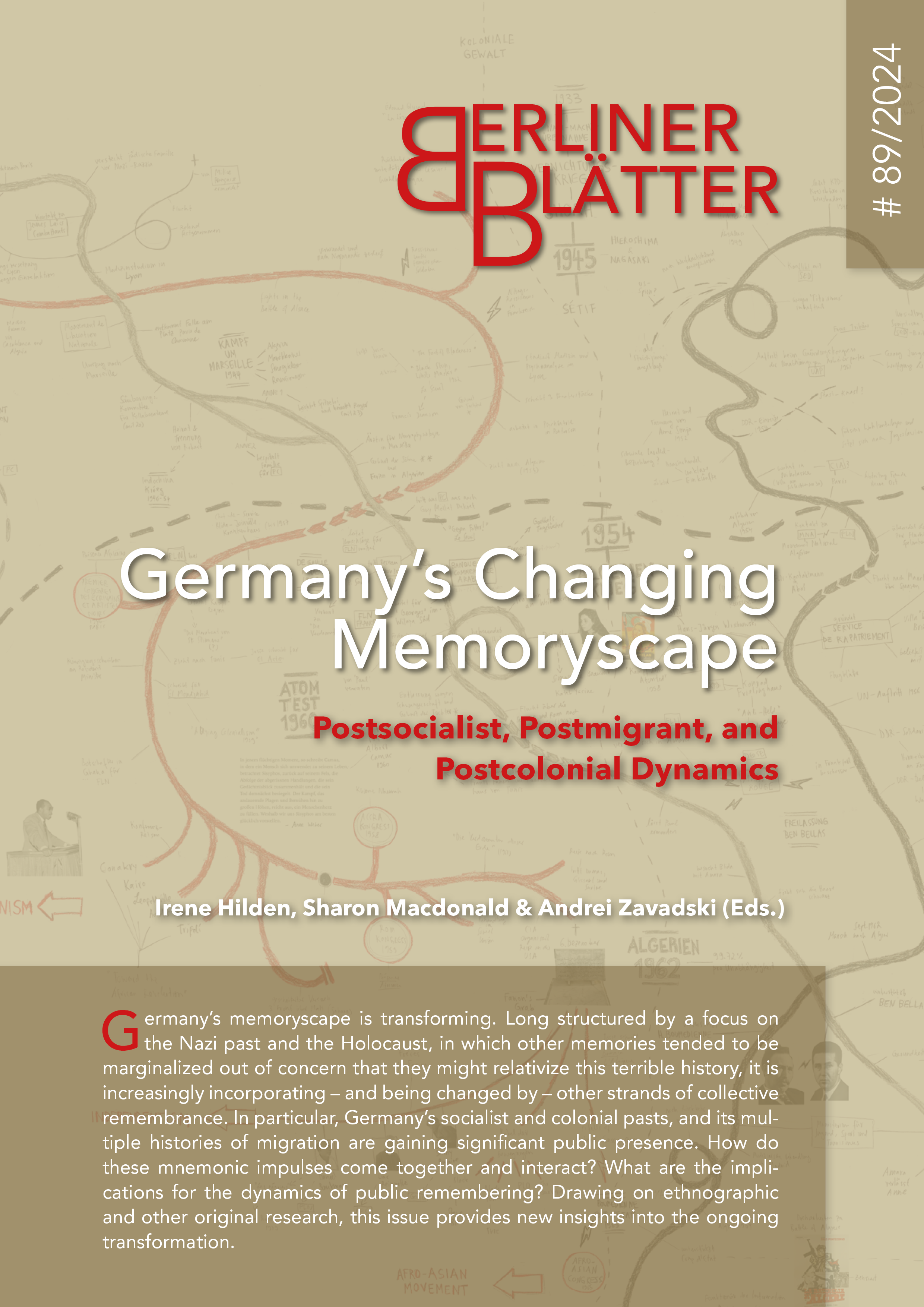Genocide Denial in Germany?
Transnational History of Violence, Turkish Nationalism, and Postmigrant Perspectives on Memory
DOI:
https://doi.org/10.18452/28735Keywords:
Germany, remembrance culture, historical revisionism, migration, nationalismAbstract
This essay argues for a genuinely transnational, postmigrant perspective on the culture of remembrance. This means going beyond a discourse and narrative space limited to Germany to look at historically evolved entanglements and to analyze migration movements against the backdrop of transnational histories of violence and geopolitical and security relations. These relationships and entanglements have domestic political effects, which also manifest themselves in the field of memory politics. The essay offers a review of recent Anglo-American cultural anthropological literature on migration and remembrance cultures. The findings formulated in the reviewed texts, on the co-articulation of coming to terms with the past and racism, are expanded to include two dimensions. On the one hand, the actions and effects of ‘foreign’, in this case Turkish, statehood and its ideologies, and on the other, transnational, critical, and oppositional grassroots work in the field of remembrance. The ethnographic view of this empirical complexity makes it possible to decenter and provincialize Germany with regard to a claim to justification and ‘export’ of coming to terms with the past (Vergangenheitsbewältigung) – but also beyond that.
Downloads
Published
How to Cite
Issue
Section
License
Copyright (c) 2024 Berliner Blätter

This work is licensed under a Creative Commons Attribution-NonCommercial-ShareAlike 4.0 International License.








